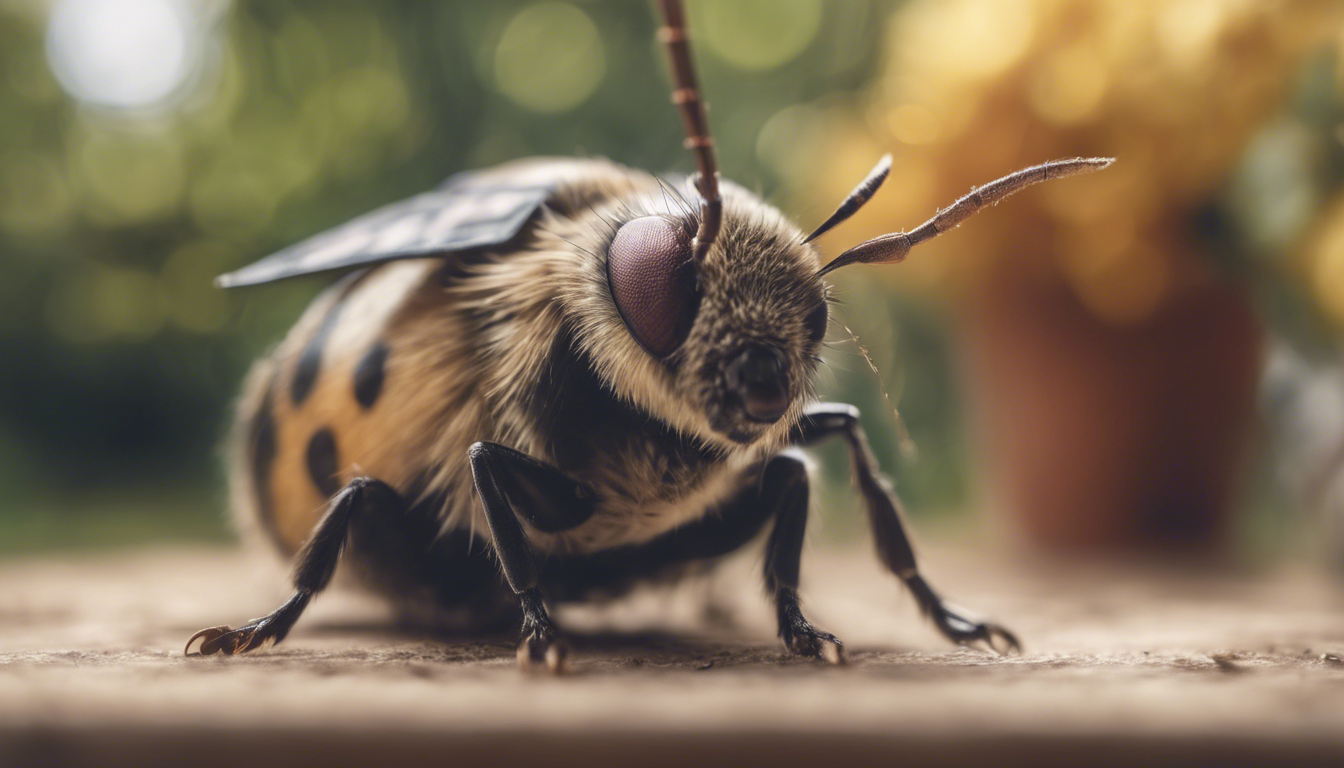Is your seasonal pest control checklist up to date? Stay ahead of pesky critters with expert advice from a seasoned outdoor enthusiast who has been dealing with critters for decades. Learn essential tips and tricks to keep your home pest-free all year round.
Identifying Common Seasonal Pests

Spring Pests
In the spring, ants and termites are common seasonal pests to watch out for. Ant colonies may establish themselves indoors, especially around food sources, while termites are notorious for causing structural damage to homes. It’s essential to look for signs of these pests such as tiny ant trails or hollow-sounding wood.
Summer Pests
During the summer months, mosquitoes and flies tend to be prevalent. Mosquitoes thrive in warm, humid conditions, making them a nuisance for outdoor activities. Flies, on the other hand, can quickly multiply in unhygienic areas, so proper waste management is crucial for prevention.
Fall Pests
As fall approaches, rodents and spiders may seek shelter indoors. Rodents like mice and rats look for warmth and food sources inside homes, posing health risks and property damage. Spiders can also become more active indoors as they search for mates and prey.
Winter Pests
In the winter, cockroaches and bedbugs are common pests to be aware of. Cockroaches are resilient insects that can survive in cold temperatures, seeking refuge in cozy indoor spaces. Bedbugs, often brought in unknowingly from travels, can quickly infest bedding and furniture.
Prevention Tips
- Seal cracks and crevices where pests can enter.
- Keep food storage areas clean and organized.
- Remove standing water to deter mosquito breeding.
- Regularly inspect and clean out clutter in basements or attics.
- Consider professional pest control services for severe infestations.
Effective Prevention Methods

Seal Entry Points
Prevention of pest infestations starts with limiting their access to your home. Inspect your property for any gaps, cracks, or openings that pests could use to enter. Seal these entry points with caulk, weather stripping, or wire mesh to keep pests out.
Maintain Cleanliness
One of the most effective pest control methods is ensuring your living spaces are clean and clutter-free. Regularly vacuum, sweep, and mop floors to eliminate crumbs and spills that can attract pests. Dispose of garbage promptly and store food in airtight containers.
Remove Standing Water
Pests need water to survive, so eliminating any sources of standing water around your property can help prevent infestations. Check for leaky faucets, clogged drains, and stagnant water in outdoor containers. Keeping moisture levels low can deter pests from settling in.
Trim Vegetation
Overgrown vegetation near your home can serve as a bridge for pests to access your living spaces. Trim bushes, trees, and shrubs to create a barrier between your property and potential pest habitats. This reduces the likelihood of pests finding their way indoors.
Regular Inspections
Schedule regular pest inspections with a professional to detect any signs of infestation early on. Early identification can prevent pest populations from growing and causing extensive damage to your property. Implementing preventive measures based on inspection findings can save you time and money in the long run.
Regular Maintenance Tips

Inspect Your Property Regularly
One of the most important aspects of pest control is regular inspections of your property. Inspecting both the interior and exterior of your home or business can help you identify potential entry points for pests such as cracks, holes, or gaps in walls, windows, or doors. Make sure to pay attention to dark, damp areas as these are ideal breeding grounds for pests.
Keep a Clean Environment
Maintaining a clean environment is crucial in preventing pests from infesting your property. Regular cleaning routines can help eliminate food sources and hiding spots for pests. Ensure that garbage is disposed of properly, keep food tightly sealed, and reduce clutter where pests can hide.
Seal Entry Points
Once you’ve identified potential entry points, it’s essential to seal them off to prevent pests from entering your property. Use caulking, weather stripping, or wire mesh to seal gaps and holes. This simple step can go a long way in keeping pests at bay.
Trim Vegetation and Remove Standing Water
Overgrown vegetation and standing water can attract pests like mosquitoes, rodents, and other critters. To avoid this, regularly trim trees, bushes, and grass around your property. Make sure to fix any leaks or eliminate areas where water can accumulate to deter pests from making themselves at home.
Consult with Professionals
If you’re dealing with a persistent pest problem or are unsure how to handle a situation, don’t hesitate to consult with pest control professionals. They can provide expert advice, thorough inspections, and safe, effective pest control solutions tailored to your specific needs.
Consulting with a Pest Control Professional
As a homeowner dealing with unwanted pests, consulting with a pest control professional can provide invaluable expertise and solutions to effectively manage pest infestations. Whether you’re facing a termite invasion, rodent issues, or persistent bed bugs, seeking the assistance of a trained professional is crucial in ensuring the safety and wellbeing of your home and family.
Benefits of Consulting with a Pest Control Professional
Expertise: Pest control professionals have extensive knowledge and experience in identifying, treating, and preventing various pest infestations. Their expertise allows them to assess the situation accurately and recommend the most suitable control measures.
Customized Solutions: A professional pest control service will tailor their treatment plans to address your specific pest problem and the unique characteristics of your property. This personalized approach ensures effective results and long-term pest prevention.
Steps to Consulting with a Pest Control Professional
- Research: Start by researching reputable pest control companies in your area. Look for certifications, reviews, and experience to ensure you choose a qualified professional.
- Consultation: Schedule a consultation with the pest control company to assess your pest issues. During this visit, the professional will inspect your property, identify the pests present, and discuss treatment options.
- Treatment Plan: Based on the assessment, the pest control professional will recommend a treatment plan outlining the methods, products, and frequency of treatments needed to eradicate the pests effectively.
- Follow-Up: Regular follow-up visits may be necessary to monitor the progress of the treatment and make adjustments as needed. Open communication with the pest control professional is key to achieving optimal results.
Choosing the Right Pest Control Professional
When selecting a pest control professional, consider factors such as experience, reputation, methods used, and pricing. It’s important to work with a licensed and insured company that prioritizes safety and eco-friendly practices while delivering effective pest control solutions.
By consulting with a pest control professional, you can effectively address pest issues in your home and safeguard your property from future infestations. Don’t hesitate to seek expert help when faced with challenging pest problems to ensure a pest-free living environment for you and your loved ones.
Remember, prevention is key in pest control so consulting with a professional at the first sign of trouble can save you time, money, and stress in the long run.
